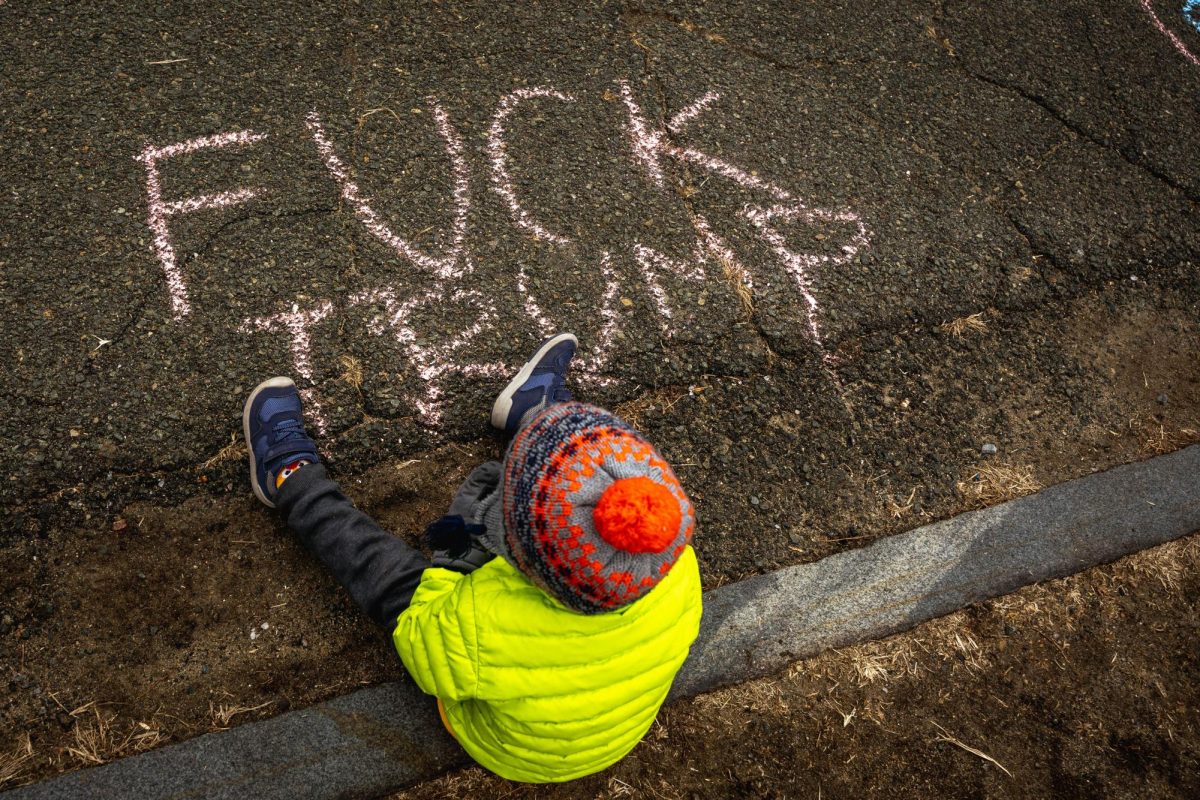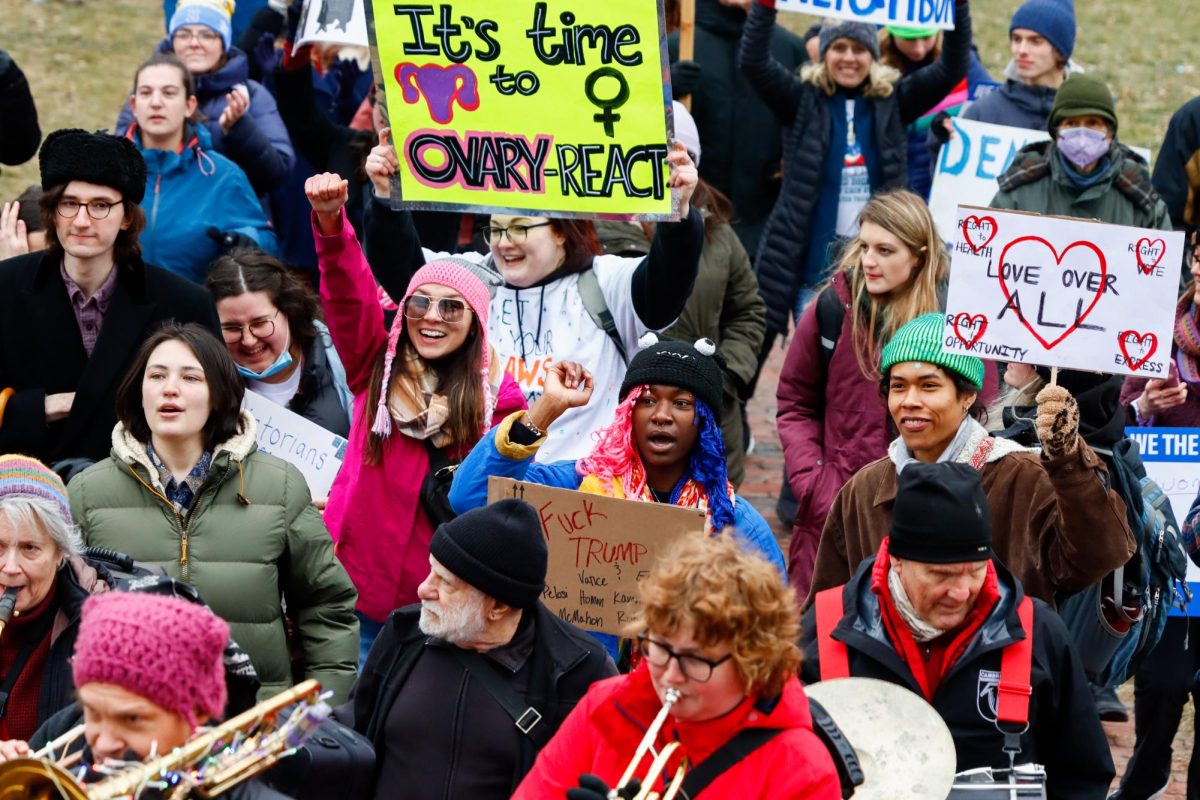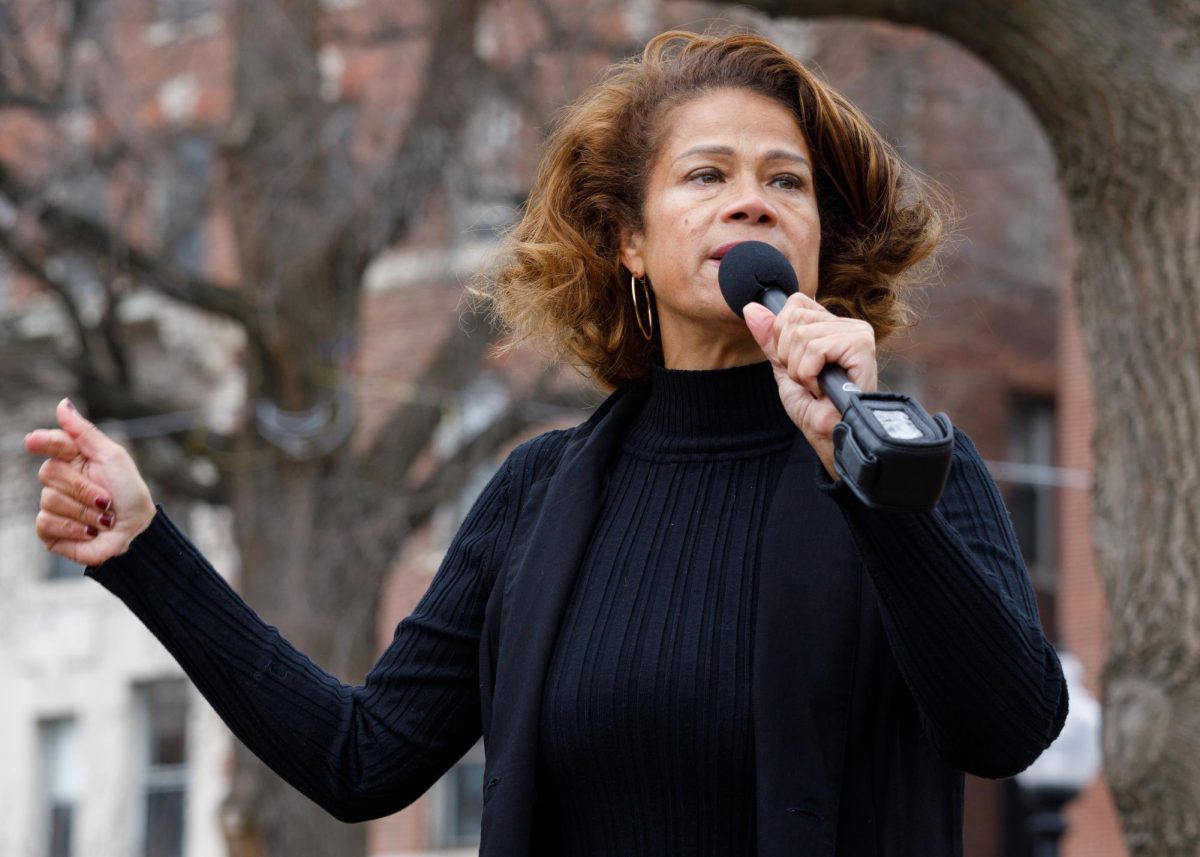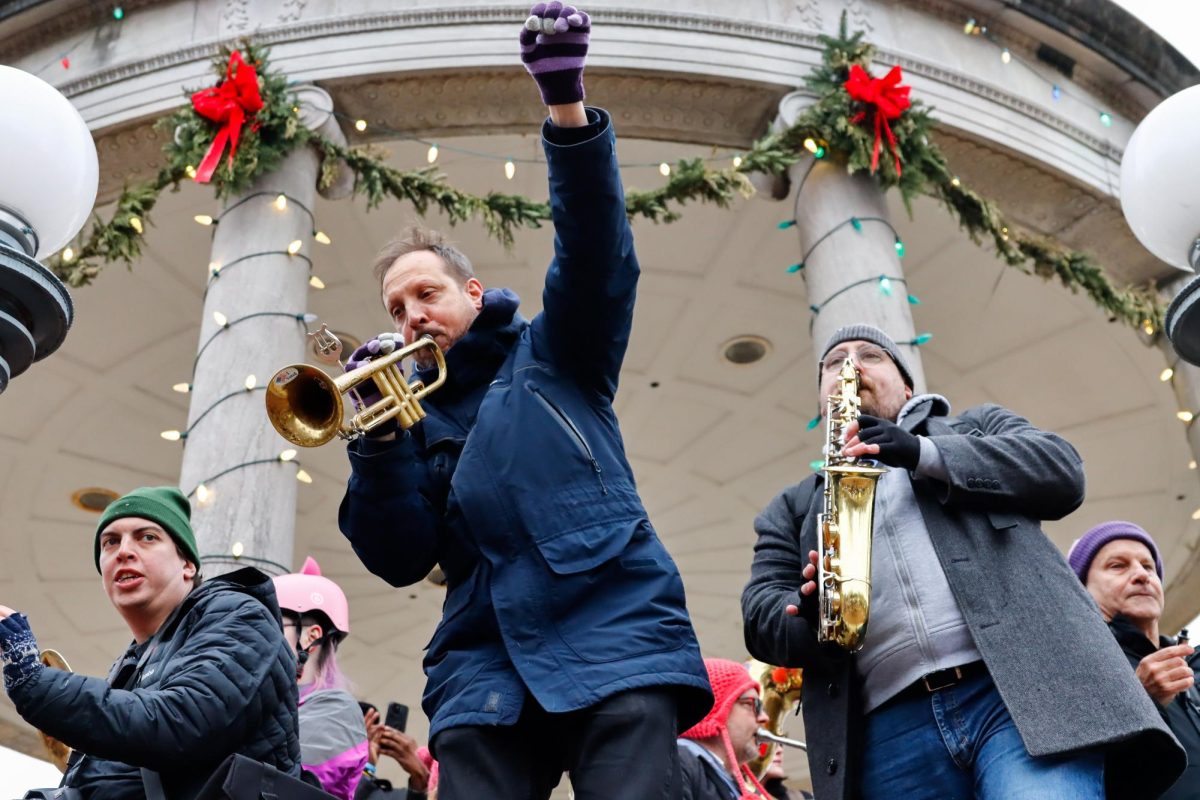While over a thousand demonstrators raised their signs, flags, and voices into the chilled air cloaking the Boston Common Saturday afternoon, some demonstrators at the People’s March felt the chilling factor was the demonstration falling short of its potential.
“[There are] millions of people in the area, so where are they?” asked Laura McKenna, an attendee from the South Shore.
The march was organized in response to Trump winning a second presidential term and the potential effects it would have on marginalized communities. The march promoted values involving reproductive health care, equal rights and protections under the law, transparent and fair elections, and a resilient New England community. New England Independence Campaign, Ranked Choice Boston, and Voter Choice MA hosted the event in Boston, but the People’s March is a national movement that held protests in various locations across the country.
“A lot of people are saying they are turning off the TV now … Don’t think that since things have gotten worse, you have to just turn off the TV,” McKenna said. “You have to go and do something about it.”
The event, which was rebranded from the “Women’s March” to the “People’s March” to broaden support, saw a fraction of the attendees this year as it saw in 2017, when Trump was first elected into office, where an estimated 150,000–175,000 were in attendance. Moreover, the 2017 Women’s March in Washington, D.C., was the largest single-day protest in U.S. history with an estimated 1 million attendees. In 2025, only 50,184 people RSVPed.
The emcee of the event was Casi Kristant, the co-chair of Berkshire Pride. In 2017, Kristant marched in Chicago with her young children.
“Today, I’m standing here for them,” she told The Beacon. “It’s the People’s March now, and I think it’s an important change because it’s more than just women who are fighting for their rights and their voices,” she added.

Many demonstrators said they attended the first Women’s March in Washington when Trump was inaugurated in 2017.
Fran Guertin and Marie Dubovsky drove over 50 miles to attend Saturday’s march together. Guertin said she was proud to have attended the first Women’s March, but was disappointed she is still demonstrating for the same issues eight years later.
“[Back] then I was outraged and shocked that it had happened,” said Guertin. “This time I’m just shaking my head.”
Dubovsky said she is mainly concerned for future generations who will have to live under the policies of Trump.
“I have granddaughters, and I cannot imagine them living in a world that was worse than when we were younger,” Dubovsky said. “I didn’t vote for him, and I showed up. That’s all I can do.”

Charlotte and Lane, who did not share their last names, said they were eager to participate. Lane said she marched in D.C. eight years ago, and regretted not being able to go this year. Both shared concerns about the potential effects of Donald Trump’s second term in office.
“I think his entire agenda, Project 2025, all the people he’s nominated, and all the people that stand next to him are out to destroy our country,” said Lane.
Boston City Councilors Sharon Durkan and Julia Mejia, and Cambridge City Councilor Patty Nolan were three of the featured speakers at the event. Nolan told the crowd that “those who would, and are already taking away our rights, want nothing more than for us to give up, to stay home, to be burnt out.”

“[The next four years] are going to look like however we allow [them] to look,” Mejia said in an interview with The Beacon. “I think we need to change the dynamic and change our mindset because if we are really serious, we can survive this.”
While attendees expressed frustration and worry about the next four years, many remain optimistic about their ability to make change.
“Doing something, even if it’s not going to fix the whole problem, is better than doing nothing,” said demonstrator Kim Hashway.
Laura Bonetzky-Joseph and her sister, Christine Way-Cotter, stood out in the crowd, with people often pausing to take photos with them. Both wore long red cloaks, similar to those from Margaret Atwood’s futuristic dystopian novel, “The Handmaid’s Tale,” which is set in a totalitarian and theocratic state.
“I think a lot of people resonate with [“The Handmaid’s Tale”] because it’s fiction, but it’s based on some true, actual events,” Way-Cotter said. “I’m here to support my sister, she’s here to support me, and all the sisters here.”

After dealing with several incidents of sexual violence and domestic abuse throughout her life, Bonetzky-Joseph is angry with the election results.
“Whether it’s abortion rights or the courts, they’re killing women,” Bonetzky-Joseph said.
After the final speeches were delivered, Kristant told the crowd that the organizers did not have a permit to organize a proper march and invited attendees to join her in a walk around the Common, while local-area activist band, BABAM, played “Oh When the Saints Go Marching In.”